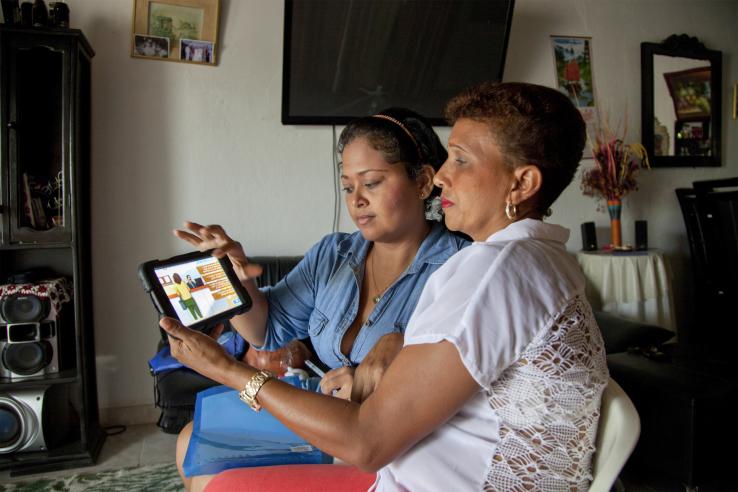Displaying 8161 - 8175 of 8483
Person
Eliana La Ferrara is a Professor of Public Policy at Harvard Kennedy School. Her research focuses on the economics of conflict, ethnicity, social norms, institutions, and the media.
Initiative
J-PAL’s Innovation in Government Initiative (IGI) funds technical assistance to governments to adapt, pilot, and scale evidence-informed innovations with a strong potential to improve the lives of millions of people living in poverty.
Initiative Resource
Initiative projects and documents
Person
Namrata Kala is an Assistant Professor in Applied Economics at the MIT Sloan School of Management. Her research interests are in environmental and development economics.
Person
Blog
This post is part of our ongoing series showcasing the work and perspectives of economists from the African continent who are leading randomized evaluations. In this spotlight, we speak with Dr. Gildas Magbondé of the University of Cape Town.
Research Paper
File: Research paper
Person
Augustin Bergeron is an Assistant Professor of Economics at Harvard University. His research interests lie at the intersection of development economics, public economics, and political economy.
Person
Pamela Jakiela is a Professor of Economics at Williams College and a non-resident fellow at the Center for Global Development. She conducts research on a range of development topics including gender, early childhood, and social protection, with a particular focus on survey design, measurement, and...
Evaluation
Researchers partnered with CGIAR’s International Rice Research Institute (IRRI) to evaluate the impact of a flood-resistant rice variety on fertilizer use and crop yield in India. During floods, the flood tolerant seeds had a clear advantage over the traditional seeds. In non-flooded areas, there was no significant difference in yields between flood-resistant and traditional seeds, suggesting that there was no yield penalty in non-flood years to farmers who switched to the new seed technology.
Evaluation
In partnership with Bridges to Prosperity, the researchers are conducting a randomized evaluation across 23 districts in Rwanda to determine the impact of building footbridges on wages and agricultural technology adoption and production.
Person
Person
Person
Purabi Chatterjee is a Policy Associate at J-PAL South Asia, where she supports the Policy Team in its mission of promoting evidence-informed policy in the E2C2 Sector. As part of the Policy team, she supports evidence generation, synthesis, and dissemination in the E2C2 sector, along with...
Person



